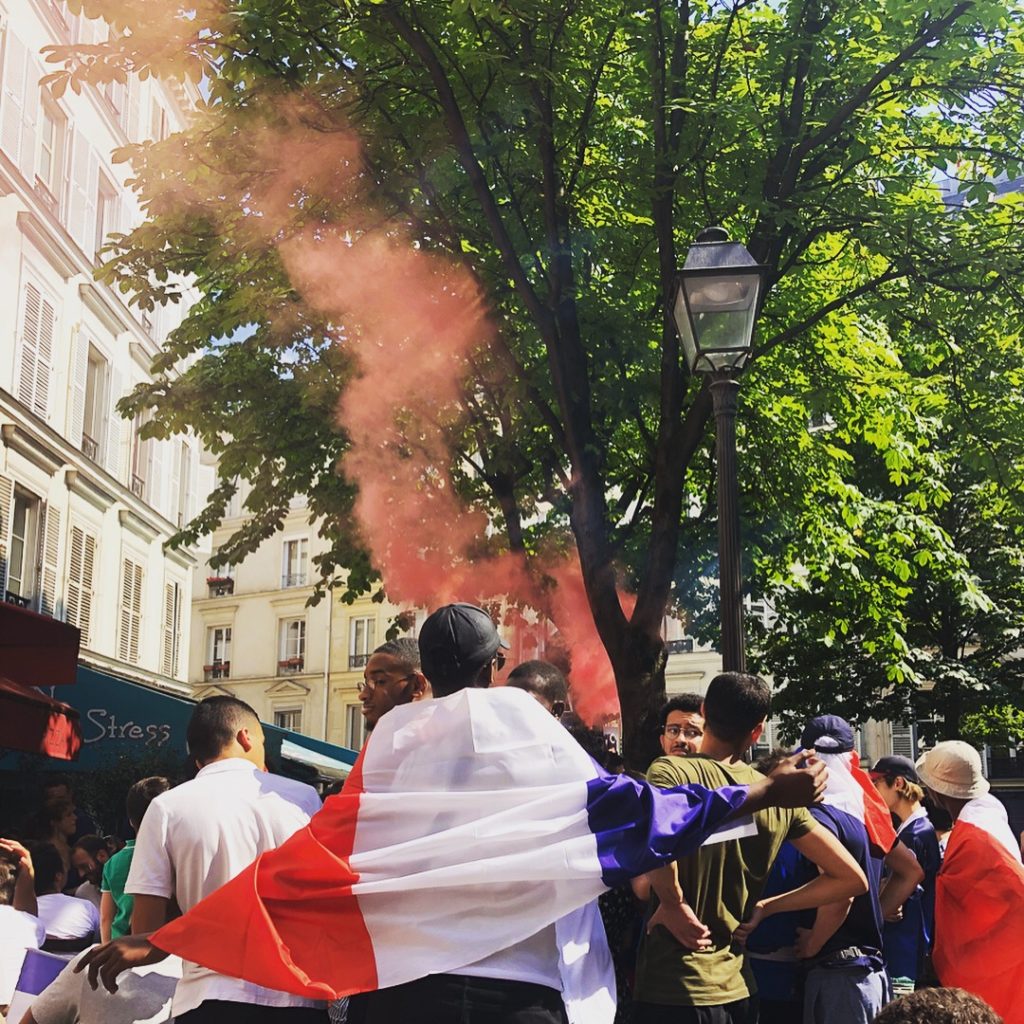
I vacillate between the sense that huge, spectacular sporting events are cathartic displays of human excellence—a virtuously sublimated will to vanquish and conquer—and little more than the modern version of the old Roman concept of bread and circuses, a simple means of keeping the pitiful masses stupefied in meaningless competitions. The question was inescapable over the past month, while the World Cup was being beamed into every bar and café in Paris. I like the World Cup—it is infectious for its sheer scope and intensity even for viewers who don’t follow the sport.
Still, I cannot escape the feeling that the event signals something faintly pathetic—like the sight of grown men tailgating for football games, but on an international scale. (That we could all so easily put aside the troubling reality that the tournament was hosted by an actual dictatorship this year speaks volumes.) And I know that I’m no better: after Rafael Nadal fell to Novak Djokovic, I tried all weekend to understand why his exit from Wimbledon (or any other tournament) can wound me so personally.
Then, for a moment, on Sunday, sitting at a café table in the midst of hundreds of other Parisians from all walks of life, as the square—and the entire country beyond it—erupted with euphoric pride every time France placed the ball in the net, I felt deeply content. I don’t think I have ever seen masses of French people so happy or the divisions in color and class and religion as minimal as they appeared right then.
As we walked home, my friend remarked, “You know, it’s crazy—it’s awesome but also embarrassing—you would think that we just won a war. You would think that we just liberated ourselves from the Germans, when in fact all we did was beat Croatia at football.”

